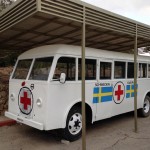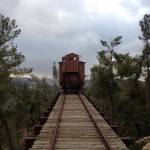Call for chapters
Holocaust Education in the Nordic and Baltic Countries
Ed.: Fred Dervin, Department of Teacher Education, University of Helsinki, Finland
Deadline for abstracts: 1st March 2014; chapters due for 1st September 2014; Book to be published in 2015
About the volume
Holocaust education is a multifaceted field (Fallace, 2008). As such there is not one way of teaching it. Depending on the country, the symbolic meaning of Holocaust education can differ immensely as “teaching is inevitably connected to national ideas about the state, citizenship, morality, and history” (Schweber, 2011: 462).
For many Holocaust scholars and educators the Nordic countries resonate with the important Declaration of the Stockholm International Forum on the Holocaust, aconference on education, remembrance and research that took place from 26-28 January, 2000. The fifth point of the Declaration ‘officialized’ for the signatories that: “We share a commitment to encourage the study of the Holocaust in all its dimensions. We will promote education about the Holocaust in our schools and universities, in our communities and encourage it in other institutions”. Since 2000 many efforts have been made in this context to include the Holocaust in curricula. Yet like in many other contexts it is not clear what they add up to. A collection of disparate projects, activities, and events are important, but piecemeal, and their collective contribution is not yet clear.
This volume proposes to examine the state of Holocaust education in the Nordic countries (Denmark, Finland, Iceland, Norway, Sweden) as well as in the Baltic countries (Estonia, Lithuania and Latvia). These two spaces have strong historical but also economic and political links. Most of these countries have, in a sense, unique relations to the Holocaust. They have also all developed specific narratives (and counter-narratives) about their involvement with Nazi Germany during the Second World War, and their support for Jews.
Interested authors may submit a proposal on any of the following themes:
– Teaching about the Holocaust: who? How? When? In what school subject(s)?
– Discourses and depictions of Holocaust education in textbooks;
– The Holocaust in National and local curricula;
– The role of Yad Vashem and the International Holocaust Remembrance Alliance (IHRA) in promoting Holocaust Education in this part of the world;
– The place of Holocaust Education in Nordic and Baltic teacher education;
– ‘Hidden agendas’ in teaching about the Holocaust (Peace education, anti-racism, etc.);
– The perception of this “difficult knowledge” (Britzman, 1998) by teacher trainers, teachers and students;
– The impact of Informal Holocaust Education such as visits to concentration camps;
– Societal discussions on the inclusion of Holocaust Education;
– Supporting teachers when teaching about the Holocaust;
– How do teachers answer questions related to the counter-narratives of involvement with the Holocaust?
– Case studies of Holocaust education in the Nordic and Baltic countries.
Potential authors are invited to submit a 300-word proposal (including a few lines about the author(s)) in English to the editor by March 1st 2014 (e-mail: fred.dervin@helsinki.fi; .rtf or .doc files only). The proposals should clearly explain concerns of the proposed chapter, and include a short description of empirical data (where applicable). A basic bibliography may also be added. Authors of accepted proposals will be notified by March 15th 2014.
The book is scheduled to be published in 2015 with Palgrave. All submitted chapters will be reviewed on a blind review basis.


